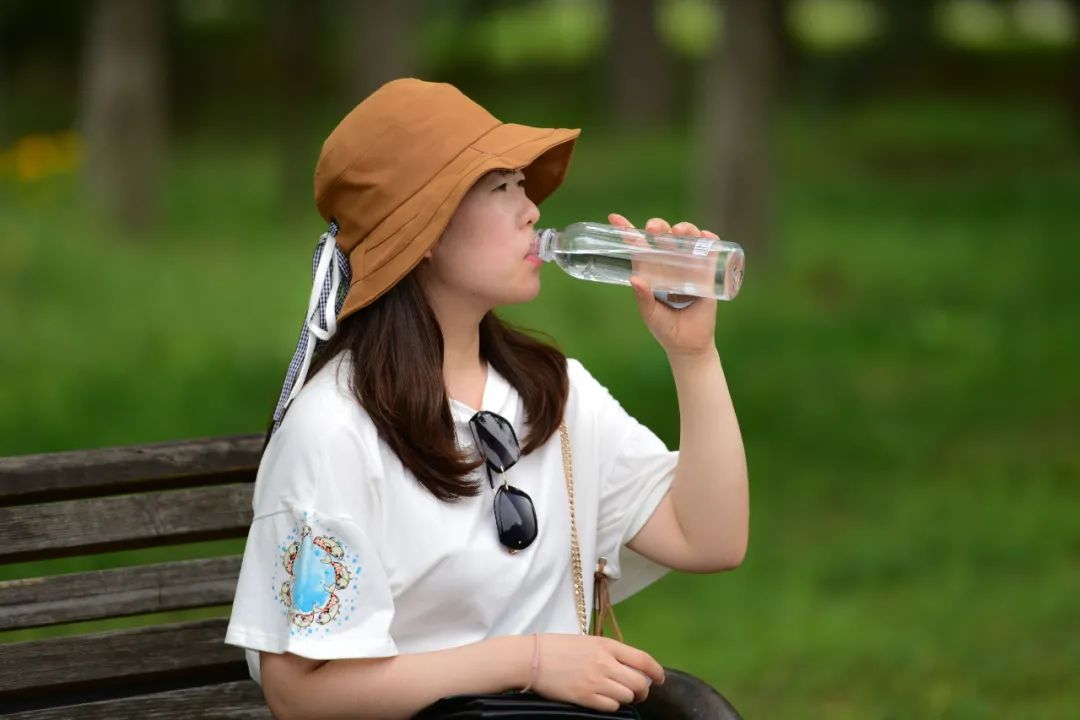Tap water, pure water, mineral water and natural water, which is better? Once and for all!
Concern → Health Times

Light the star.
Don’t miss every push.
Author of this article:
Bing Wang, Beijing Center for Disease Control and Prevention Environmental Health Office.
Now more and more people are used to buying bottled water or bottled water. Mineral water, natural water, distilled water … There are many kinds of drinking water in the market, which makes people dazzle. What’s the difference between these different names of water?

Health times chart
What is the difference between common packaged drinking water?
Bottled water and bottled water in the market belong to packaged drinking water. At present, the common packaged drinking water can be roughly divided into three categories: pure water, natural water or natural spring water and mineral water.
Step 1: Pure water
Purified drinking water is made by distillation, electrodialysis, ion exchange, reverse osmosis or other appropriate water purification processes. Distilled water on the market also belongs to pure water.
In the process of treatment, purified water removes harmful components such as bacteria, viruses, heavy metal elements and organic substances, and has low hardness and good taste, and can be directly drunk, without forming scale when boiling water. However, in the process of treatment, minerals beneficial to human beings such as potassium, calcium and zinc are also removed.
2. Natural water or natural spring water
Drinking natural water and drinking natural spring water are all made from natural sources that have not passed through the public water supply system. The difference is that the water source of natural water can come from wells, mountain springs, reservoirs, lakes or alpine icebergs, while natural spring water can only come from underground springs.
These two kinds of water only need minimal treatment (such as filtration, ozone or equivalent treatment), that is, impurities and harmful substances in the water are removed, and the original minerals and trace elements beneficial to human beings are retained. The composition and proportion of mineral elements in natural water or natural spring water from different water sources are different, and there are also some differences in taste and water quality.
3.mineral water
The mineral water mentioned in daily life mainly refers to drinking natural mineral water. Drinking natural mineral water is water that naturally gushes from deep underground or is collected by drilling, contains a certain amount of minerals, trace elements or other components, and is unpolluted in a certain area, and preventive measures are taken to avoid pollution.
Mineral water belongs to natural water in essence, but natural water is not necessarily mineral water. Mineral water must be deep groundwater, and its components such as minerals or carbon dioxide must meet one or more of the boundary indicators in national standards. Generally speaking, mineral water has stable water quality, little microbial content, and contains a certain amount of minerals and trace elements needed by human body, such as zinc, selenium and strontium.
There are two key points to distinguish various packaged drinking water!
In other words, the key to distinguish various packaged drinking water depends on its water source and implementation standards.
From the point of view of water source, pure water comes from public water supply or non-public water supply, while natural water, natural spring water and mineral water come from non-public water supply.
From the standard point of view, pure water, natural water and natural spring water implement the national standard for food safety-packaged drinking water (GB 19298-2014), while natural mineral water implements the national standard for food safety-drinking natural mineral water (GB 8537-2018).
Different packaged drinking water has different water quality and taste because of its different components.
What kind of water should I choose for daily drinking?
From a health point of view, natural trace elements and minerals in water are valuable nutrition and health resources, so the more "pure" water is, the better. We should try our best to keep natural elements beneficial to human body and remove harmful components.
Scientific research shows that moderate amounts of calcium and magnesium in water have protective effects on cardiovascular health. Especially for those who are mildly magnesium deficient, such as those who take diuretics due to hypertension and heart disease, it can play an important role to supplement magnesium by drinking water. In addition, compared with magnesium in food, magnesium in dissolved ionic state in water is more easily absorbed by human body.
Therefore, pure water should not be used as a single daily drinking water for a long time, and it can be drunk occasionally or alternately with other types of drinking water.
Although purified water is not suitable for long-term drinking, in some cases, such as making tea, it has a unique advantage because it does not contain "impurities". Pure water has a low pH and the least mineral content. When used to make tea, the soup is bright in color and pure in fragrance, which can best reflect the original taste of various teas.
Is the higher the mineral content, the better for your health?
Trace elements and minerals in water may improve some chronic diseases, such as digestive tract diseases. However, water with high mineral content is not suitable for everyone. In some cases, it is "too much" and must be selected according to its own situation.
If some studies believe that the immature kidneys of infants and young children, such as high mineral content in water, will increase the burden on the kidneys;
Children and people with weak renal function (such as renal dialysis patients, the elderly, etc.) should avoid drinking water with high strontium content for a long time, because low calcium intake may cause bone health risks for such people.
The most affordable and healthy choice is boiled water!
In fact, besides packaged drinking water, the most healthy and economical daily drinking water for ordinary people is boiled tap water, that is, boiled water. Tap water is the most common drinking water in China at present. It is taken from natural water sources on the surface or underground, purified and disinfected by a series of treatment processes, and then transported to thousands of households.
China has strict requirements on the quality of tap water, and tap water that meets the Hygienic Standard for Drinking Water (GB 5749-2022) is safe and reliable.
The treated tap water removes some harmful parts and retains minerals beneficial to human body. However, due to the long distance of municipal pipelines, in order to avoid microbial pollution during transportation, it is recommended that you boil them and drink them.
After boiling tap water, it can not only kill microorganisms in it, but also effectively remove volatile substances such as residual chlorine and halogenated methane. Drinking boiled water is a good habit passed down from generation to generation. Boiled water is cheap, easy to prepare, convenient and fast, and it is the most economical and practical first choice for drinking water to meet human health.
In addition to drinking the right water, it is also important to drink enough water. The recommended daily drinking amount for adults is 1500~1700 ml. Drinking water should follow the principle of "small amount and many times", and don’t wait until you are thirsty.
More exciting content
be carefully chosen
essay
This article is from: March 25, 2024, Beijing Center for Disease Control and Prevention [Beijing CDC reminds you] How to choose pure water, mineral water and natural water? ",some contents have been deleted, and the copyright belongs to the original author.
Original title: "Tap water, purified water, mineral water and natural water, which is better? Once and for all! 》
Read the original text